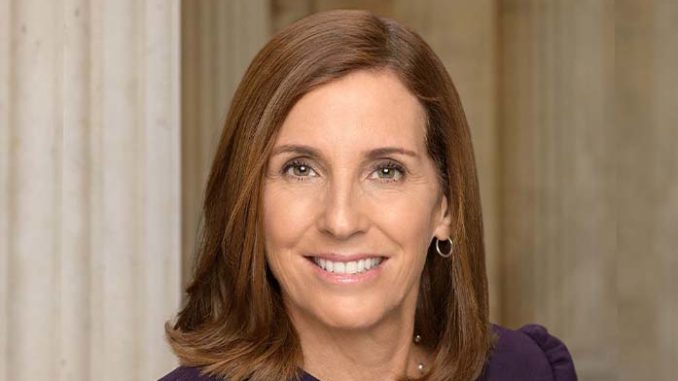
When I arrived to the Senate last year, I made it part of my mission to bolster the judicial system in Arizona to ease the ever-growing backlog of cases in our federal courts. I am also committed to helping transform the judicial branch away from activist judges using their positions to impose their political agendas on people by legislating from the bench. Last week, I helped get one step closer to that goal by voting to confirm President Trump’s 200th judicial nominee, leaving zero circuit court vacancies for the first time in at least four decades.
This accomplishment is not only monumental for the United States at large, but also for Arizona where our federal judges are burdened with heavy caseloads that hinder their ability to effectively do their jobs.
With massive caseloads and an insufficient number of federal judges, Arizonans have to wait far too long to make their case in court, and lose the opportunity for swift justice. This case backlog makes it more difficult for federal judges to adjudicate workplace-rights issues, to enforce immigration laws, to crack down on fraudulent drug manufacturers, and more. The COVID-19 pandemic has caused many courts to temporarily shut down, further worsening the backlog and emphasizing the need for more judges.
The Republican-led Senate has alleviated this judicial burden by confirming five judges to the federal bench in Arizona in less than four years. Among those is our new Ninth Circuit Judge Bridget Bade, who I helped to confirm last year. Reshaping the Ninth Circuit is long overdue and returns it to a fairer, more balanced court. I am a cosponsor of legislation to split up the Ninth Circuit, putting Arizona into a new Twelfth Circuit freed from the liberal activism imposed by the Ninth for too long. Until that becomes law, we are transforming the Ninth Circuit with new conservative judges who are committed to calling balls and strikes, not imposing policy and ideology. Since Judge Bade’s confirmation to the court, she has joined several important decisions, including on issues like religious liberty, immigration law, administrative law, and property rights. Her conservative track record, along with her commitment to impartiality, careful legal reasoning, and the rule of law has made her critical to balancing the once solidly liberal Ninth Circuit. Due to our efforts, there is actually a good chance a case could draw a conservative panel in the Ninth Circuit, something unheard of three years ago.
In addition to Judge Bade, I advocated strongly for the confirmation of Judge Scott Rash to serve as a U.S. district judge for the District of Arizona. Judge Rash’s work ethic and fair-mindedness have already made him an outstanding judge in Pima County and will help him navigate the heavy caseloads currently facing our federal judges in the District of Arizona.
Judge Rash is the latest to join the three other Trump-nominated federal district court judges in Arizona, including Judges Dominic Lanza, Susan Brnovich and Michael Liburdi. I have known Judge Liburdi for several years and I worked tirelessly to help secure his nomination to the court. His valuable experience in private practice and state government along with his commitment to upholding the Constitution has served the District of Arizona well.
The confirmation of these judges, along with the 197 other principled judges confirmed by the Republican-led Senate since 2017, not only strengthens our nation’s courts, but will also shape our judicial system for generations to come. Every single one of these judges has vowed to interpret the law and Constitution as written, not legislate from the bench as we saw become commonplace under the Obama administration. The separation of powers is foundational to our republic and these 200 judges will help us restore that balance.
On top of my work to rebuild the federal judiciary through the confirmation process, I have also worked on several bills to make Arizona’s judicial system more accessible while enhancing its effectiveness.
Last July, President Trump signed into law my bipartisan bill to allow federal court proceedings to take place in Flagstaff or Yuma. Prior to our legislation, Arizonans living in those two regions had to travel all the way to Globe, Phoenix, Prescott, or Tucson to seek justice in federal court. This law was key to making the federal court system more accessible to rural Arizonans.
Most recently, I introduced a bipartisan bill in February to shore up our judicial system, bringing the U.S. District Court for the District of Arizona up to full strength. The size of the federal judiciary in Arizona has not kept up with the size of our increasing population, leaving the state overdue for more new federal judges than almost any place in the United States. When passed, my bill will aid in statewide efforts to alleviate our current case backlog and help us address issues like illegal immigration in a timelier manner.
I will continue to work with the administration and others in the Senate to strengthen our federal courts both across the U.S. and at home in Arizona. I am committed to continuing the Republican-led Senate’s track record of confirming highly-qualified, principled judges to our federal judiciary.
